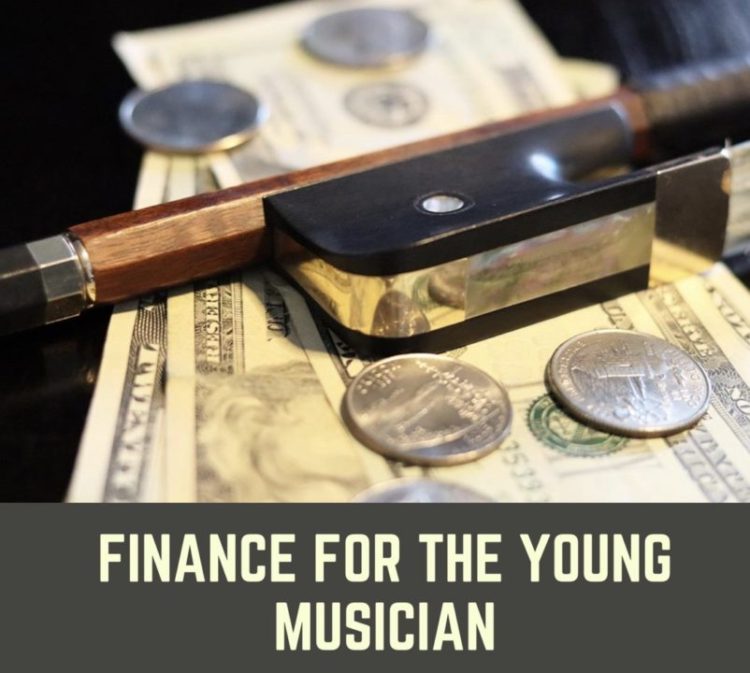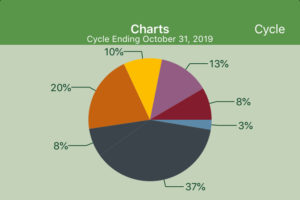This post comes from blog and podcast team member Trevor Jones, with whom I’ve collaborated on numerous projects over the years. Trevor wears many hats in the music world, from being the resident bassist at The Marriott Theatre in metro Chicago to performing with rock band Molehill and teaching bass at Illinois Wesleyan University. He’s a great person and musician with a lot of wisdom in the realm of musician finances. Enjoy!
~Jason Heath
Hi, this is Trevor Jones, I work on the blog and podcast with Jason, and am stoked that Jason asked me to contribute.
Check out Jason’s blog post on Crafting a Music Career. In it, he outlines in great detail his work in the Chicago freelance music scene. There is much to be gleaned from Jason’s experience.
In this post, I am going to give you some tips on how you can build financial security, so you can live a (slightly) less stressful existence in the freelance world.
School Loans = Emergency Fund?
When I graduated from DePaul University I had about $10,000 that I hadn’t used for school or living expenses. I could either pay it back immediately or repurpose it as an emergency fund. I chose the latter. Knowing that I had an emergency fund gave me the ability to make some mistakes and take gigs that paid little or nothing at all.
Budget
I avoided creating a budget for years. I wish I hadn’t. Creating a budget puts your fixed and variable expenses in one location. Why is that helpful? For one, you can figure out how much money you need to be making to cover your fixed expenses (rent, loans, car, phone, etc.) and how much you have left-over for your variable expenses (entertainment, etc). For now, your budget doesn’t need to be any more complicated than that. I use this pre-programmed google sheet.
Habitual Saving
If you have not established an emergency fund (3-6 months of expenses) then get to work! After graduating, I had $60 a week in income, and that’s if all three of my students showed up to their respective lessons. Soon after, I picked up some freelance gigs and ended up winning a job in a regional orchestra. Regardless of the pay, I deposited 10% of my take-home pay into a high yield savings account. Even if I only made $60 during the week, I put $6 into the account. The idea, like practicing, is to be consistent and build positive habits.
Be Strategic
Over the next few years, I increased my teaching load. At one point I was teaching 30-35 lessons a week. It was more teaching than I wanted to be doing, but it allowed me the freedom to:
- Tour with my band.
- Avoid taking gigs that I didn’t want to play.
Teaching isn’t the only way to generate additional income, but it is a way to use your expertise to earn a living, and, more importantly, to be generous by sharing your knowledge.
Loans + Emergency Fund
If you are a recent graduate, then you will likely need to begin to pay back your loans. While each person’s situation is unique, you should plan to begin repayment when your grace period ends. If you plan to travel around the world, while finding your life’s purpose, perhaps you can defer your payments. I digress.
Check your budget to see how much you can afford to pay. If you can afford the minimum monthly payment, start with that, and then, as you bring in more income, increase the amount you pay each month. I also recommend automating this payment. Automating ensures you’re never late (this will help build your credit), and you will likely get a .25% reduction on your interest rate.
Once your emergency fund is established, redirect that allocation of your income to your loan’s balance.
Taxes
If you freelance (non-W-2 income), you will not get taxed on the front end, though you will need to pay those taxes later. I suggest paying taxes quarterly, so you’re not hit with a huge bill at the end of the year. Avoid the assumption that you get to keep each dollar that comes into your account through your non-W-2 income. I know folks that have made this mistake and, consequently, ended up with an unexpected bill. I was one of them!
Take Action
I understand that money management might be intimidating, boring, stressful, and something you have actively avoided. If you’ve read this far, then congratulations on overcoming those emotions! Part of existing in this crazy business is having a base-level understanding of personal finance. In my experience, the more I understand, the more empowered I feel to make decisions that will provide stability in my personal and creative life.
Your Checklist
•Create a budget.
•Establish an emergency fund.
•Automate your loan payments.
•Pay your taxes quarterly.
Bass News Right To Your Inbox!
Subscribe to get our weekly newsletter covering the double bass world.



thanks for the information